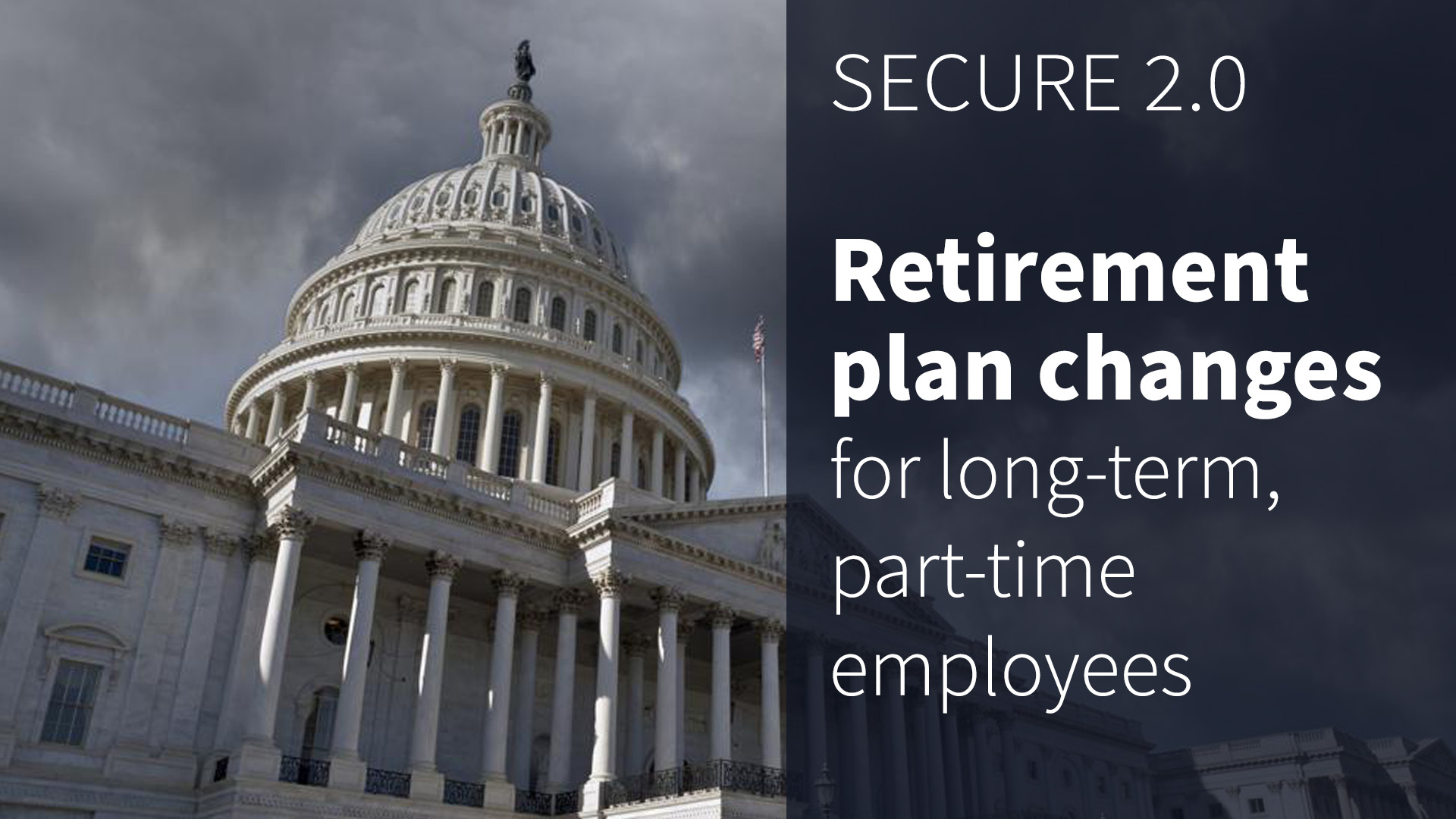Contribute More to Your FSA in 2023
Taxpayers that participate in employer-sponsored health Flexible Spending Accounts (FSAs) can contribute more in 2023. The annual contribution amount will rise to $3,050 (up from $2,850 in 2022).
FSAs allow owners to pay for qualified medical costs with pre-tax dollars. That’s good news if you’re scrambling to keep up with rising costs. FSA owners use a debit card or pay out of pocket for expenses and then seek reimbursement. FSA funds must be used by year end unless an employer elects to allow a two-and-a-half-month carryover (or grace period). For 2023, the amount that can be carried over to the following year will rise to $610 (up from $570 for 2022). Contact your tax advisor with questions.
Possible Tax Legislation by Year End – and Beyond
With the 2022 midterm elections in the rear view mirror, the potential congressional agenda for the lame duck session has come into view.
Senate Finance Committee Chairman Ron Wyden (D-OR) said: “There’s going to be a clear debate about tax choices, and this whole debate about the Child Tax Credit is front and center on that discussion.” He added that Democrats might support some business tax breaks coveted by Republicans in the negotiations. (Last year’s expanded Child Tax Credit, which provided advance monthly payments to eligible families, expired.)
For their part, Republicans have been pushing for extended and enhanced bonus depreciation deductions that allow businesses to write off equipment purchases in a single year, a deduction for interest expenses and other business tax breaks.
There’s also a possibility that a major retirement savings package, which has bipartisan support, will pass by the end of 2022. This is often referred to as the SECURE Act 2.0.
What about tax legislation next year after the new Congress is seated? Democrats will have control of the U.S. Senate and Republicans have a majority in the U.S. House of Representatives.
The Ways and Means Committee is the chief tax-writing committee in the House. It also oversees Social Security, Medicare and other issues. Now that Republicans have secured a House majority, their representation on the committee is expected to increase from 17 to 25. (Democrats likely will retain 18 seats).
However, Senate Democrats will likely prevent any rollback of President Biden’s initiatives that have become law and may prevent Republicans from enacting their own tax legislation. With Republican control of the House, raising the debt limit may become contentious and lead to a government shutdown. In addition, the President may issue more executive actions to achieve his policy goals.
These are only some of the possibilities. Stay tuned.
Do You Know What Your Filing Status Is?
Before you know it, tax filing season will be here. One of the basic things to know is your correct filing status. Most of the five statuses are easy to determine. They are:
- Single,
- Married filing jointly,
- Married filing separately,
- Head of household, and
- Qualifying widow(er).
The head of household status is often misunderstood. It can lead to owing less tax than single status. But to qualify, you must maintain a household for more than half the year as the principal home for a qualifying child or other relative that you can claim as a dependent. Under a special rule, this may include a parent that doesn’t live with you.
Click here for more information from the IRS or contact your tax advisor with questions.
Required Minimum Distributions: Important Considerations for Certain Taxpayers
Required Minimum Distributions (RMDs) generally are minimum amounts that a retirement plan account owner must withdraw annually starting with the year that he or she reaches 72 (70½ if you reached 70½ before January 1, 2020). There are two considerations for people who are interested in giving their distributions to charity and those who inherited retirement plans in 2021 or 2022.
1. Seniors who are charitably inclined. Distributions from a traditional Individual Retirement Account (IRA) are generally taxable when received, though exceptions exist. For charitably inclined taxpayers who are at least 70½ years old, one tax-favored exception is the qualified charitable distribution (QCD). A QCD is a nontaxable distribution made directly by an IRA’s trustee to organizations that are qualified to receive tax-deductible contributions.
A QCD can benefit taxpayers by letting them support the qualified charity of their choice, while reducing their taxable income. With a QCD, there’s no need to itemize deductions. The maximum annual QCD exclusion is $100,000. Note that if you wish to make a QCD for 2022, you should contact your IRA trustee soon so there’s time to complete the transaction before year end. Click here for more information.
2. Taxpayers who inherited IRAs and other plans. The IRS is providing relief for taxpayers who didn’t take certain RMDs from inherited IRAs and other plans. The relief under Notice 2022-53 is for taxpayers subject to the “10-year rule” who inherited retirement plans but didn’t take RMDs in 2021 or 2022 but were required to do so.
The SECURE Act requires that inherited plans must generally be paid out on or before December 31 of the 10th calendar year following the original holder’s death. But under proposed regulationss issued in early 2022, distributions must begin in the 1st calendar year following the year of the original holder’s death. The IRS will issue final regs but stated that penalties won’t apply for failure to take RMDs in these cases. Contact your tax advisor with questions about your situation.
Court: Charitable Donations Must Be Properly Substantiated
To receive a charitable tax deduction for the donation of art, a donor must properly substantiate the deduction. This is done with either a qualified appraisal or completion of Form 8283, “Noncash Charitable Contributions.”
In one recent case, an art dealer and collector donated a sculpture for which he claimed a $600,000 charitable tax deduction. The IRS disallowed the deduction because the donor failed to properly substantiate it. He didn’t attach to his return either a fully completed Form 8283 or an appraisal.
The U.S. Tax Court also disallowed the deduction. The taxpayer sought to avoid having his deduction disallowed under a section of the tax code that provides a deduction to be allowed despite failing to substantiate it “if it is shown that the failure . . . is due to reasonable cause and not to willful neglect.” However, the court determined the taxpayer didn’t show that the failure was due to reasonable cause. (TC Memo 2022-102)
PKS & Company, P. A. is a full service accounting firm with offices in Salisbury, Ocean City and Lewes that provides traditional accounting services as well as specialized services in the areas of retirement plan audits and administration, medical practice consulting, estate and trust services, fraud and forensic services and payroll services and offers financial planning and investments through PKS Investment Advisors, LLC.
© Copyright 2022. All rights reserved.
Brought to you by: PKS & Company, P.A.





